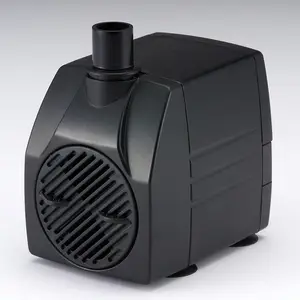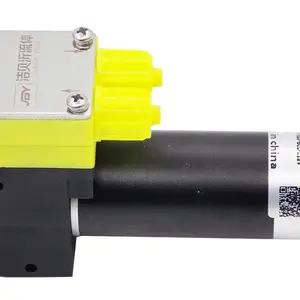What are Water Pumps
Water pumps are essential mechanical devices that move water from one place to another through various means, such as pressure or vacuum. They serve as a cornerstone in numerous industries, including agriculture, construction, and manufacturing, as well as in residential settings. The primary purpose of a water pump is to ensure the efficient movement and management of water within systems, whether for irrigation, drainage, or the transfer of water through building services.
The operation principles of water pumps can vary depending on their design. Centrifugal pumps, for example, use a rotating impeller to create a vacuum and centrifugal force to propel water forward. Conversely, positive displacement pumps trap a fixed amount of water and then force it into the discharge pipe. These pumps can handle a variety of fluid viscosities and flow rates, making them versatile across different applications.
Water pumps can be powered by various energy sources such as electricity, engines, or even solar power. They are often manufactured from materials like cast iron, stainless steel, aluminum, or plastic, depending on their intended use and the type of fluid they are designed to handle. The efficiency and longevity of a water pump are influenced by factors such as its design, material construction, and the conditions under which it operates.
Types of Water Pumps
In the realm of construction and building machinery, there is a broad array of water pumps available to meet diverse needs:
Centrifugal Pumps: These are the most common type of pumps found in construction projects. They operate using a rotating impeller to generate centrifugal force that moves water. They are ideal for transferring large volumes of water at low pressures.
Submersible Pumps: Designed to be fully submerged in water, these pumps push water to the surface. They are frequently employed in deep wells or to handle sewage where direct access to the fluid is necessary.
Diaphragm Pumps: Also known as AODD (Air Operated Double Diaphragm) pumps, they utilize flexible diaphragms that reciprocate back and forth to create a pumping action. Suitable for applications requiring gentle handling of fluids or where the liquid contains solid particles.
Booster Pumps: These are used to increase the pressure and volume of water that flows from showers or faucets within building complexes or irrigation systems.
Solar Water Pumps: These eco-friendly pumps use solar energy to operate and are commonly used in remote locations where electricity supply is limited or unavailable.
Each type has its own set of common use cases within various industries where efficient fluid management is required.
How to choose Water Pumps
Selecting the right water pump for your business requires careful consideration of several factors:
Flow Rate: This is one of the most crucial aspects to consider. The flow rate measures how much water can be moved within a certain period and should align with your system's requirements.
Head Pressure: The pump must be capable of overcoming the gravitational pull and resistance in your system. Understanding the head pressure needed for your application ensures that you choose a pump with adequate power.
Power Source: Whether electric, engine-driven, or solar-powered, it's essential to match the pump with your available power sources.
Material Construction: The durability and compatibility of the pump with the fluid being handled depend significantly on its material construction. Cast iron pumps might suit industrial environments while stainless steel could be preferable for corrosive liquids.
After-Sales Service: Consider suppliers who provide comprehensive after-sales service such as online support or field maintenance as this can greatly affect the lifespan and performance of your pump.
Best Water Pumps on Alibaba.com
Alibaba.com stands out as a global wholesale marketplace that connects businesses with a vast range of suppliers offering an extensive selection of water pumps suitable for any application. The platform's commitment to simplifying international trade makes it an invaluable resource for businesses looking to source reliable equipment efficiently. With features designed for mobile accessibility and multilingual communication tools, Alibaba.com ensures that buyers can negotiate deals effortlessly in their preferred languages.
The vast inventory on Alibaba.com includes advanced filtration tools allowing you to pinpoint exactly what you're looking for—be it centrifugal pumps for swift water transfer or submersible options for deep well applications. Furthermore, comprehensive after-sales services provided by many suppliers guarantee continued support long after purchase.
Alibaba.com's Trade Assurance service adds an additional layer of security to transactions by protecting payments until delivery is confirmed. Whether you're outfitting a construction site or upgrading your manufacturing plant's fluid management system, Alibaba.com offers tailored solutions that cater to businesses across various industries worldwide.
Common FAQs for Water Pumps
What types of water pumps are most suitable for construction sites?
Water pumps appropriate for construction sites generally include centrifugal pumps for handling large volumes of water and submersible pumps for dewatering purposes or managing sewage.
How do I calculate the flow rate needed for a water pump in my manufacturing plant?
The required flow rate can be calculated by determining the volume of water your process requires within a specific timeframe, which is often measured in gallons per minute (GPM) or cubic meters per hour (m³/h).
Can water pumps handle fluids with solid particles?
Yes, certain types of water pumps, like diaphragm or trash pumps, are designed to handle fluids with solid particles by allowing the solids to pass through without clogging the pump.
What factors should I consider when choosing a water pump for agricultural irrigation?
Key factors include the flow rate, head pressure required to transport water across your fields, and whether the pump materials are compatible with the water source and environmental conditions.
Are there any water pumps powered by alternative energy sources?
Yes, solar water pumps are available and are an eco-friendly option for remote locations where traditional power sources are not accessible.
How does head pressure affect my choice of a water pump?
Head pressure determines the pump's ability to lift water against gravity and should be considered when choosing a pump to ensure it can achieve the desired flow at the necessary height.
What after-sales services are important when purchasing a water pump?
After-sales services that can be crucial include online support, video technical support, and the availability of engineers to service machinery overseas.
How do I ensure compatibility between the water pump material and the fluid it will handle?
You should verify that the material of construction, such as cast iron, stainless steel, or aluminum, is suitable for the type of fluid you plan to pump, taking into account factors like corrosiveness and abrasiveness.
What is the importance of selecting a water pump with adequate power source compatibility?
Choosing a pump that matches your available power sources is essential for ensuring continuous operation and avoiding downtime due to power incompatibilities.
How do I choose between a centrifugal pump and a submersible pump?
The choice depends on your application's needs; centrifugal pumps are ideal for low-pressure, high-volume transfers on the surface, while submersible pumps are designed to operate underwater and handle higher pressure applications.











































 浙公网安备 33010002000092号
浙公网安备 33010002000092号 浙B2-20120091-4
浙B2-20120091-4